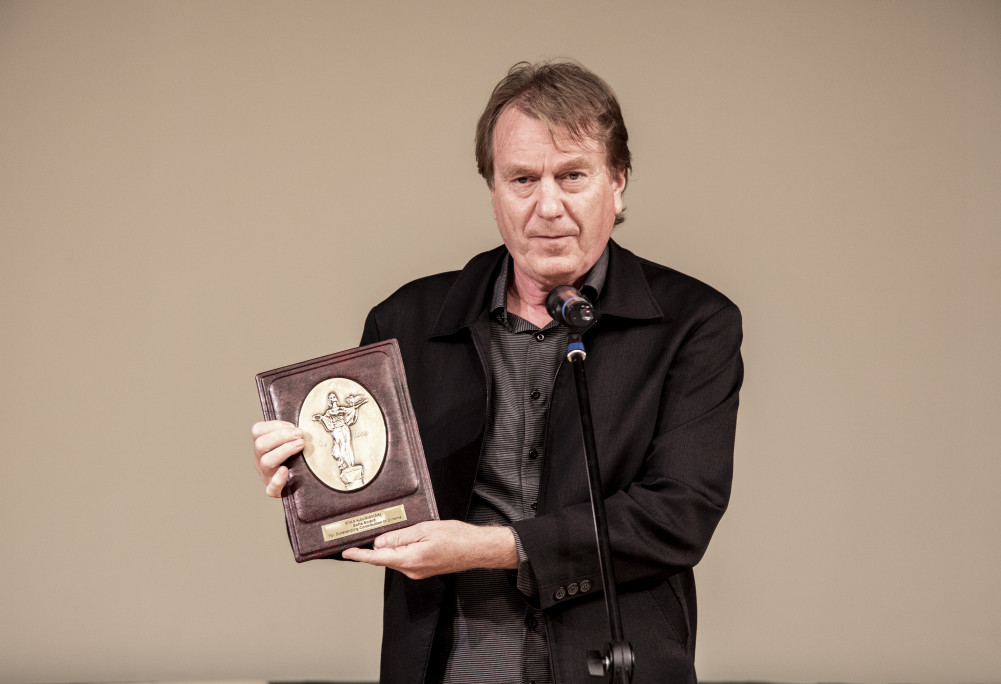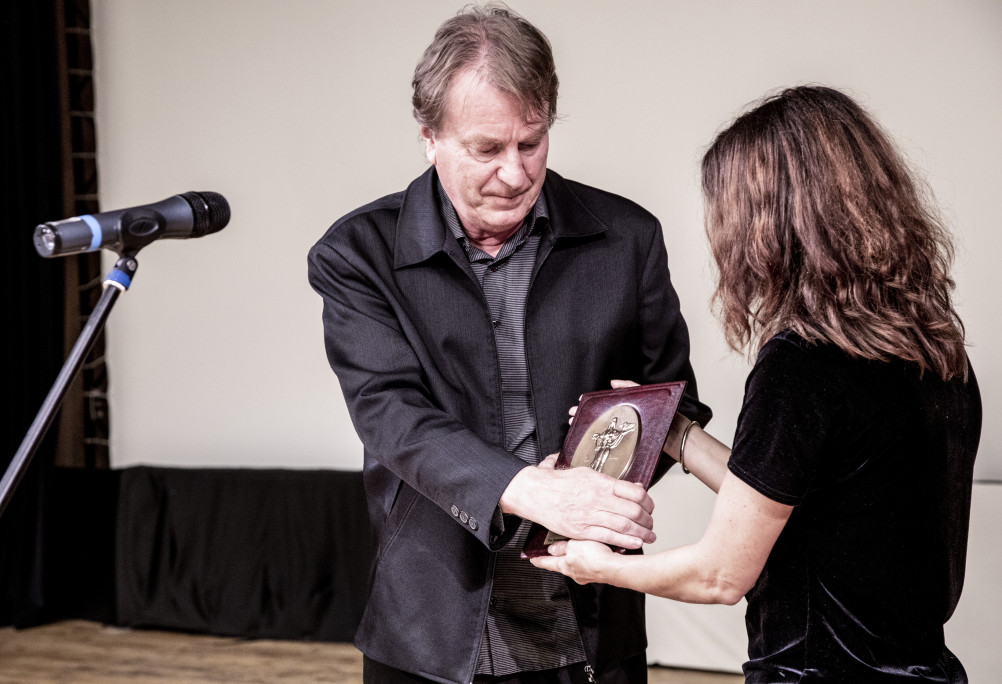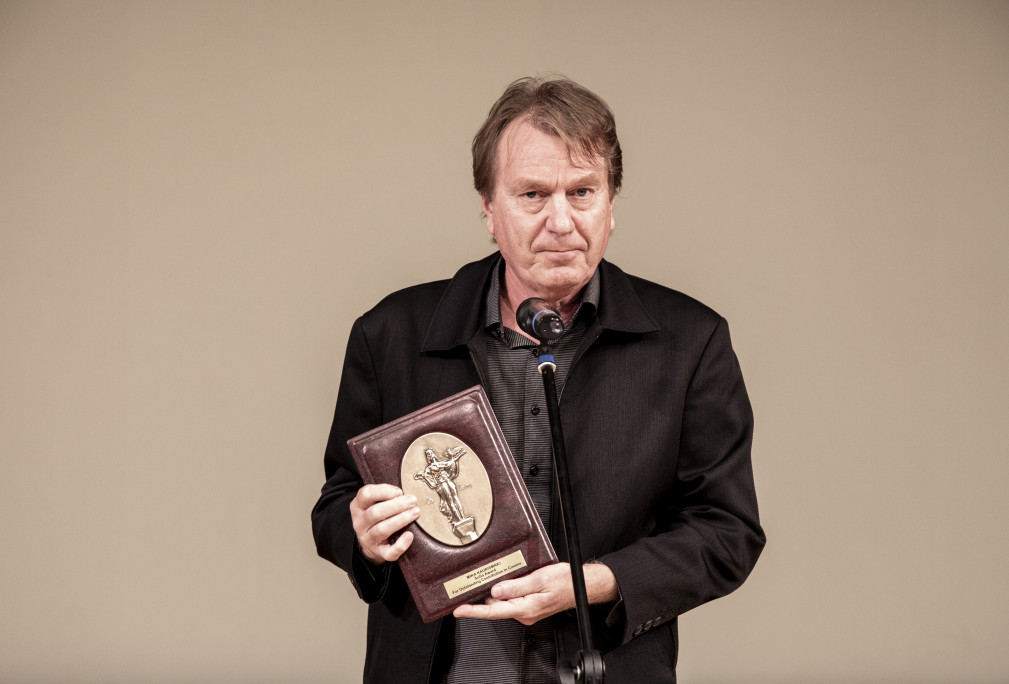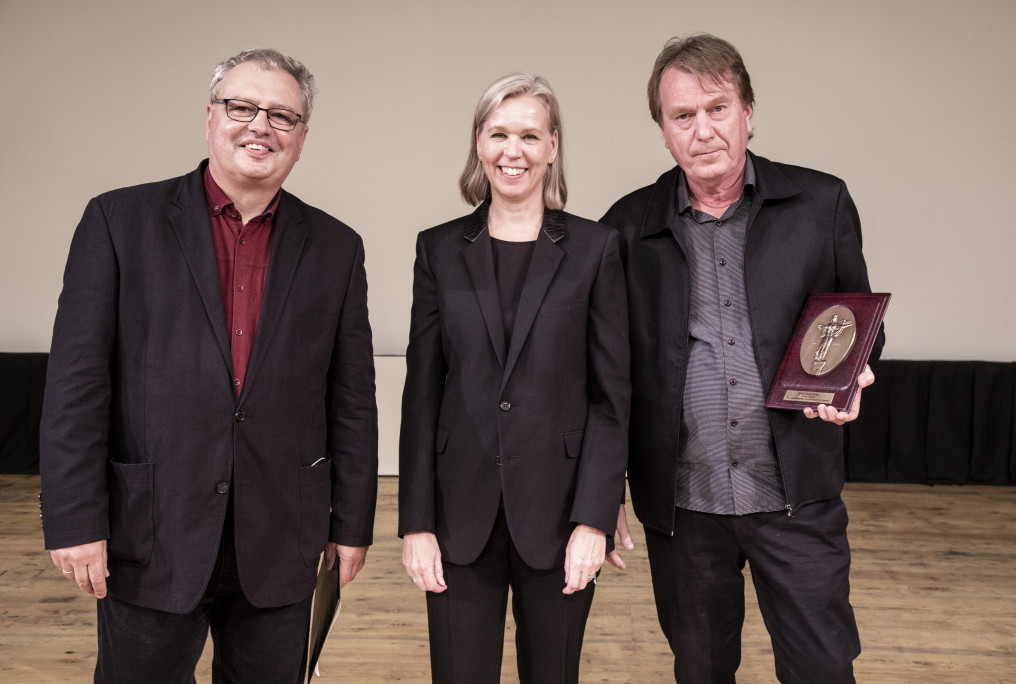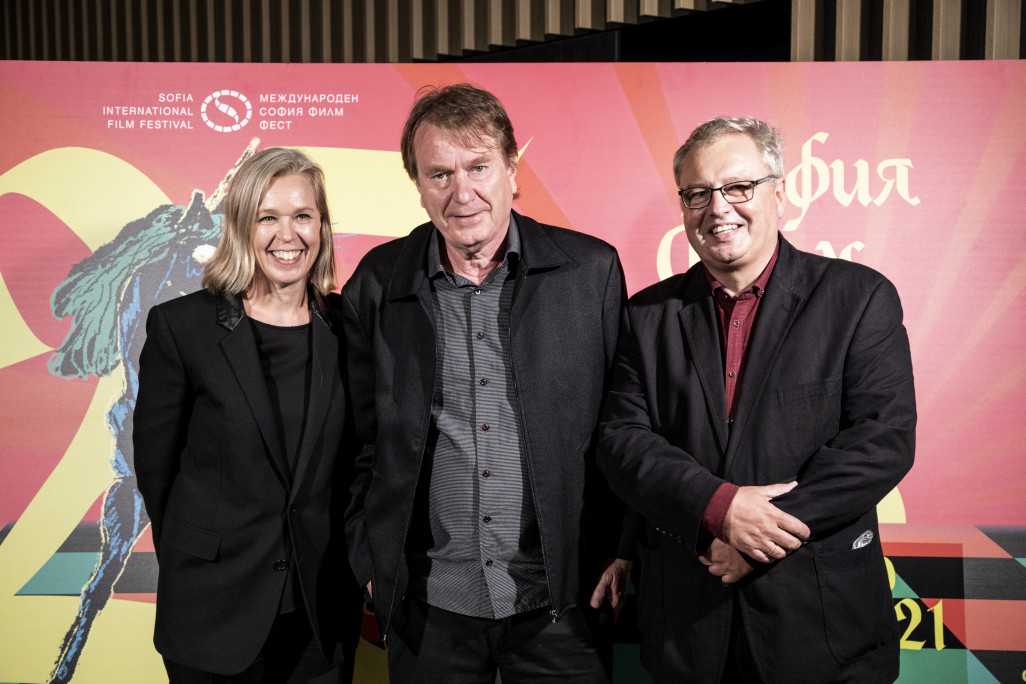„I feel as if I'm not a film director, but a film anthropologist – I like to travel, observe and explore the world and people with my camera. And I capture all these impressions on tape“, says Mika Kaurismäki about his passion for cinema.
He was born in 1955 and is the older brother of Aki Kaurismäki. Mika became famous for his films „Helsinki-Naples All Night Long“ (1987), „Zombie and the Ghost Train“ (1991), „Three Wise Men“ (2008), which the audience of Sofia Film Festival was able to see on the big screen in the 25th Sofia IFF's programme in 2021.
Mika Kaurismäki graduated in cinema in Munich, and his first feature „The Liar“ (1980) became a sensation in Finland literally over one night. This is also the beginning of the Kaurismäki brothers' film career - the two are starting a new era in Finnish cinema. Mika, Aki and a group of their friends founded Villealfa Filmproductions, a company that produces remarkable low-budget films. In the 90's Mika founded his own company „Marianna Films“. Among his first independent projects were „Zombie and the Ghost Train“ and also „The Worthless“ (1982), awarded with the Finnish „Jussi“ award for best director – road-movie about two men and a woman who drive around the country while being chased by a group of criminals and police.
In 1990, Mika Kaurismäki set out for the jungles of South America and, together with Samuel Fuller and Jim Jarmusch, made the documentary „Tigrero: A Film That Was Never Made“ (1994), which won the FIPRESCI Prize at the Berlinale. In 1998, Mika Kaurismäki left for the United States and assembled a stellar cast to film his biggest production, „LA Without a Map“ (1998), with names such as David Tennant, Julie Delpy and Johnny Depp.
For 30 years, the director traveled between Helsinki and Brazil, where he found the love of his life – his wife: „I went to Brazil for a week, I liked it and I stayed. Finland is small for me – everything is the same, no matter where you travel around the country“. Mika Kaurismäki has also made many documentaries in South America, such as „Moro No Brasil“ (2002), „Welcome to São Paulo“ (2004), „The Sound of Rio: Brasileirinho“ (2005), and „Mama Africa“ (2011) – about the first black performer to win a Grammy in 1965, South African musician Miriam Makeba.
Mika Kaurismäki's latest film, „Gracious Night“ („Yö armahtaa“, 2020), was shot during the pandemic in April 2020.
„All my other projects were put on hold, so we decided to make this film. It's not exactly about the virus, but the action takes place during this strange pandemic", explains the director, and chooses „Corona Bar“ as the set - one of the cult establishments that he and his brother Aki keep in Helsinki. In fact, Mika Kaurismäki relies again on the cast of „Three Wise Men“ and meets the audience with three not-so-wise men who gather during the pandemic, finding refuge in the „Corona Bar“.
* * *
Close readings of Kaurismaki's films make it clear that the films challenge most aspects of mainstream cinema as they navigate transvergent courses through the established power structures of cinematic, political, economic and cultural production. His films can seldom be categorized into the conventional structures, on which much of the global critical discourse and distribution and exhibition practices of cinema rely. They contain the critical perspectives we usually associate with the art-house, while they use genre and aesthetic conventions from popular cinema in ways that seem to abide with commercial imperatives... One must acknowledge one's roots, both in their positive and negative implications. Despite Kaurismaki's multinational productions with their distinctly global scope, national identity remains for him the grounding force in a globalizing world; a way of navigating his creative work through this complex mosaic...
„The Cinema of Mika Kaurismäki: Transvergent Cinescapes, Emergent Identities“ by Pietari Kääpä, published 2011 by Intellect
* * *
The SOFIA Municipality AWARD for outstanding contribution to the world of cinema was presented to MIKA KAURISMÄKI during his visit at 25-th Sofia International Film Festival - September 18, 2021, „Lumiere“ cinema.



